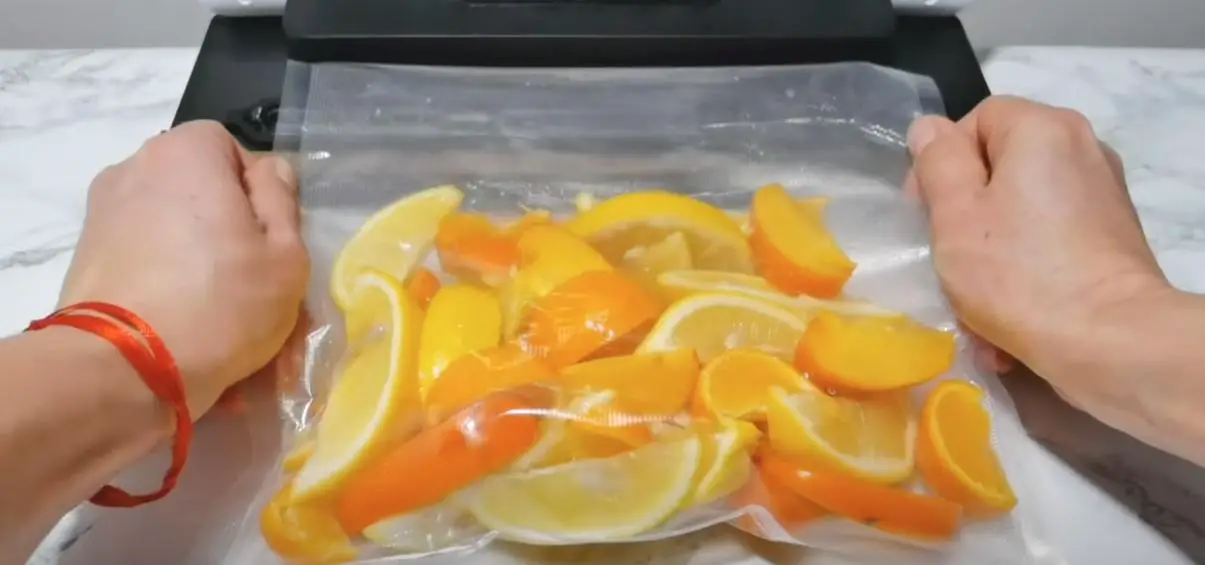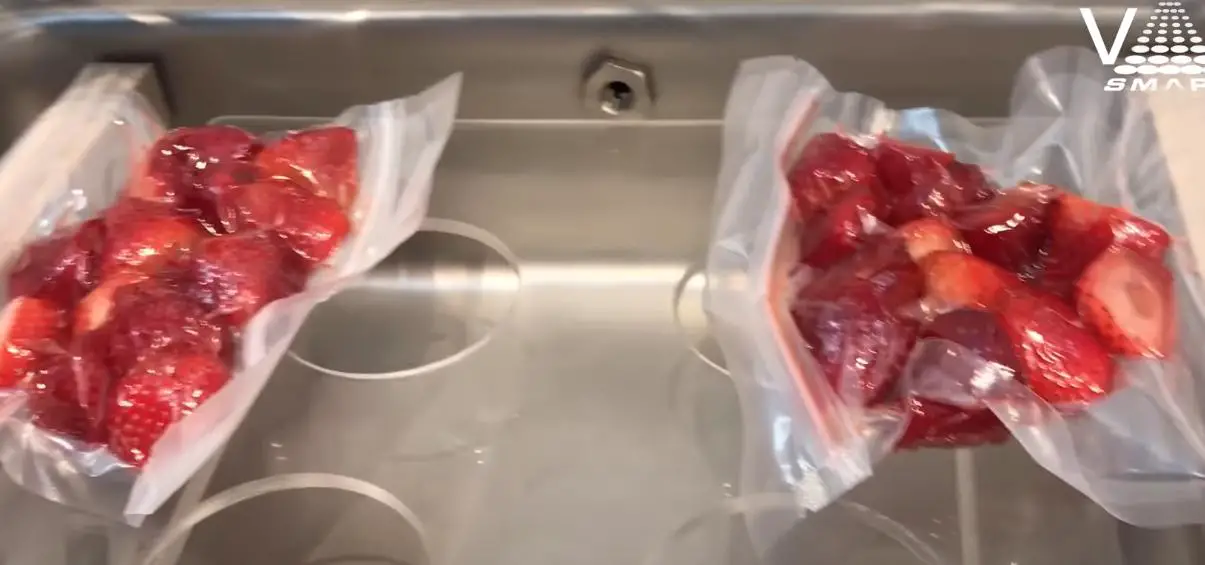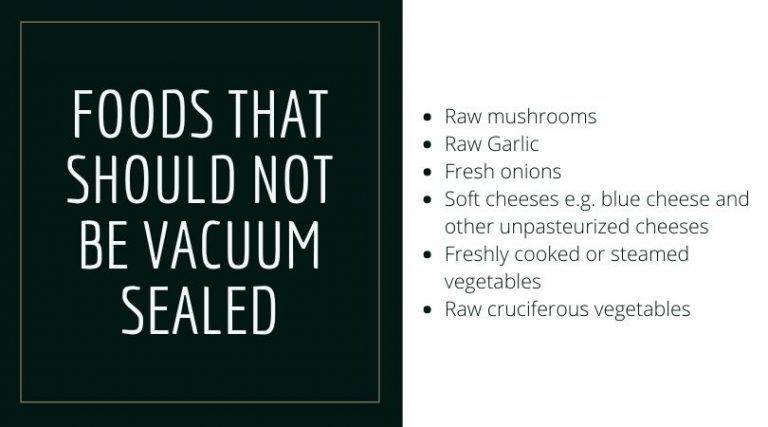Can You Vacuum Seal Fruit? (Answered)
Key Takeaways
- You can vacuum seal fruit to preserve it for a long time
- Make sure the fruit is clean and dry before sealing
- You can pre-freeze the fruit for even longer storage
Have you ever wondered if you can vacuum seal fruit? Well, wonder no more!
In this article, we’ll cover everything you need to know about vacuum sealing fruit, from how long it lasts to whether or not there are any benefits.
How long does vacuum-sealed fruit last?
Vacuum sealing is a great way to extend the shelf life of your fruit. Vacuum-sealed fruit can last 1-2 weeks longer than non-sealed fruit. This is because vacuum sealing removes the air from around the fruit, which prevents spoilage.

There are a few things to keep in mind when vacuum-sealing fruit.
First, make sure that the fruit is clean and dry before you seal it. If there is any moisture on the surface of the fruit, it will cause mold to form during storage.
Second, be sure to use a food-grade vacuum sealer bag or container. These bags are made of thicker material that will prevent punctures and leaks.
Finally, store vacuum-sealed fruit in a cool, dark place like a pantry or cupboard.
Vacuum sealing is an easy and effective way to prolong the shelf life of your fruit.
By following these simple tips, you can enjoy fresh fruits for weeks longer than with traditional storage methods.
What foods should not be vacuum sealed?
When it comes to vacuum sealing, there are certain food items that just don’t work well.
Soft cheeses, raw onions and garlic, Cruciferae or Brassicaceae vegetables, raw mushrooms, and freshly cooked food should not be vacuum sealed. This is because they can spoil quickly or cause the seal to break.
So what foods are best for vacuum sealing? Dry goods like grains and pasta work well, as do coffee beans and nuts.
Fruits and vegetables that are low in water content also do well in a vacuum seal. So things like apples, oranges, and potatoes are all good choices.
If you’re looking to prolong the life of your food, vacuum sealing is a great option.
Does sealed fruit last longer?
Vacuum sealing is a great way to preserve fruit for long periods of time.
Avocados, for example, can last up to twelve months when vacuum sealed.
This method of storage is also effective for other fruits such as grapes and strawberries.
Can you vacuum-seal fresh fruit and vegetables?
You can vacuum seal fresh fruit and vegetables, but there are a few things you should keep in mind.
First, wash and dry the product thoroughly before sealing. Some fruits and vegetables can also be flash-frozen before sealing, which can help extend their shelf life.
Vacuum-sealed produce can last for weeks or even months, depending on the type of food.
With proper storage, vacuum-sealed foods can retain their freshness and flavor for a long time.
Which fruits are too delicate to be vacuum sealed in their fresh state?
When it comes to vacuum sealing, some fruits are just too delicate to be sealed in their fresh state.
This is because the vacuum sealing process can cause bruising and damage to delicate fruits like berries and papayas.
Treating the fruit before sealing (like blanching broccoli) can help to prevent this from happening.
How do you properly wash and dry fruit before sealing it
Vacuum sealers are an essential tool for any home cook who wants to prepare food in bulk or preserve leftovers.
But before you can seal your food, you need to make sure it is properly washed and dried.
Here’s a step-by-step guide to washing and drying fruit before vacuum sealing it:
- Wash your hands thoroughly with soap and water before handling any food
- Rinse the fruit under cold water, using a gentle scrubbing motion if necessary to remove any dirt or debris
- Dry the fruit completely with a clean towel or paper towel. Make sure to pat dry especially well if the fruit is wetter than usual – moisture can cause freezer burn when sealed in a vacuum bag
- If you’re working with larger pieces of fruit, cut them into smaller pieces that will fit comfortably in your vacuum bags
- Seal the bag according to the manufacturer’s instructions, making sure all air has been removed from the bag before sealing it shut
After the food is sealed, how long can it stay preserved?
Different foods will have different shelf lives when vacuum sealed, but in general, vacuum sealing can preserve food for 2-5 times longer than other methods.

For example, pasteurized hard and semi-soft cheeses will last 1 to 2 weeks when stored in a refrigerated environment. This is because the airtight seal prevents bacteria from growing and contaminating the food.
Vacuum sealing is also great for preserving meat and fish. When properly stored in a freezer, these foods can last for months without losing their quality or flavor. This makes it easy to cook in bulk and then have convenient meals ready to thaw and eat later on.
When you are ready to reuse them, what’s the best way to rehydrate the food by soaking it in water?
When you’re ready to reuse the sealed food, the best way to rehydrate it is by soaking it in boiling water.
Blanching the food in boiling water for 30-60 seconds before dehydrating will also work well.
You can dehydrate the food in a microwave or Excalibur food dehydrator.
If you can’t heat water, cold water will also work but it will take about twice as long.
Final Verdict
Yes, you can vacuum seal fruit by pre-freezing them on a cookie sheet. This helps extend the shelf life of fruits and vegetables. Some fruits are too delicate to be vacuum sealed in their fresh state.
